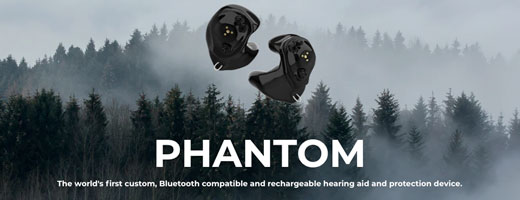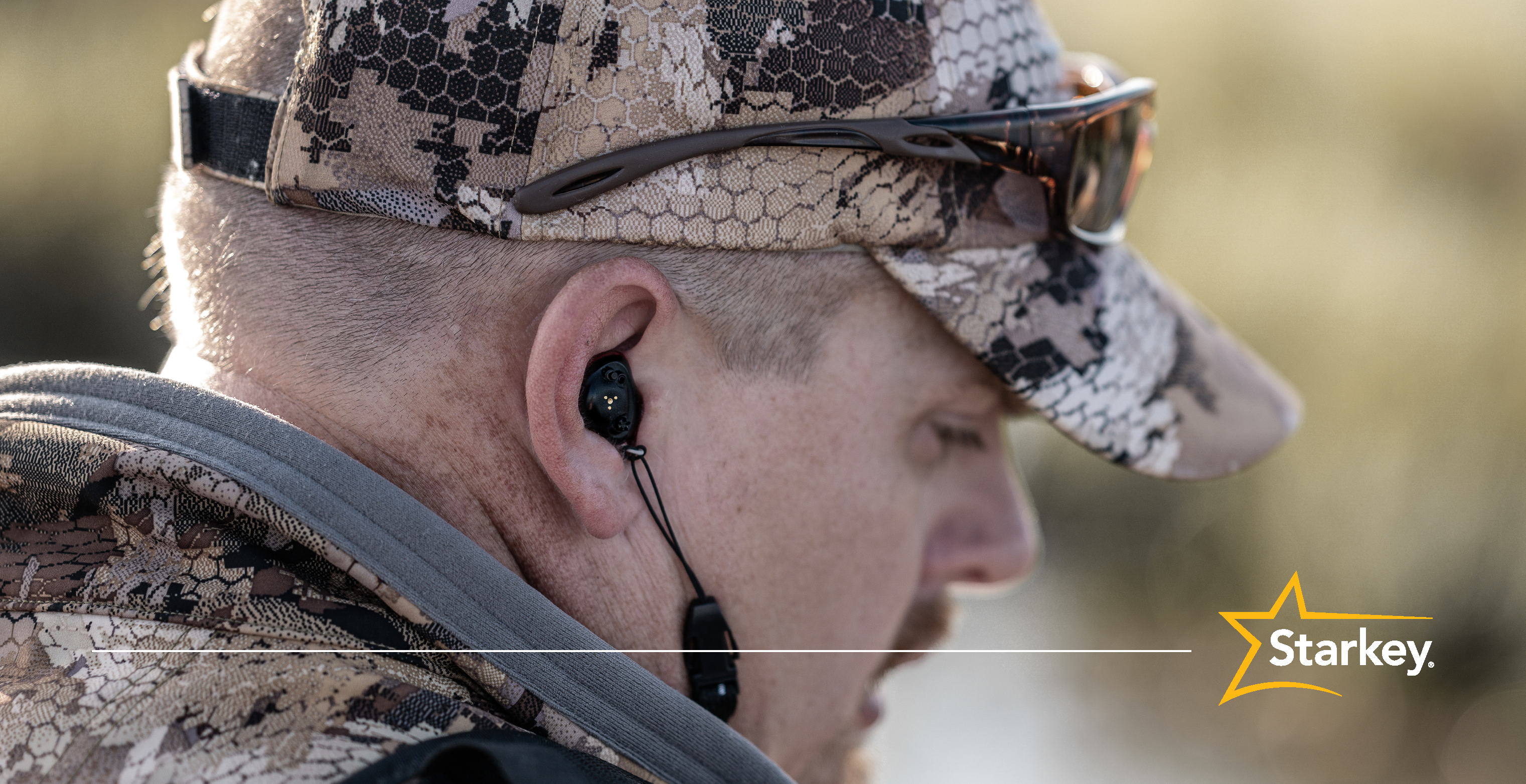In Canada, an estimated 5.7 million people participate in some form of hunting, fishing, trapping and sport shooting [1]. For any of these activities that use a firearm, it's important to note that hearing protection should be properly used! Failure to do so may result in temporary or even permanent damage to your hearing. Peak sound pressure levels from a firearm can range between 140 to 175 decibels. Individuals who shoot firearms are at a higher risk of high-frequency, noise induced hearing loss [2].
Thomas Lowry, M.D., an otolaryngologist at Mayo Clinic Health System can attest to how damaging a single shot can be. He states, “I see patients every week with hearing loss, and a large number of those patients have a history of noise exposure without the use of hearing protection. I’m an avid sportsman, and I’m amazed by how many people don’t wear hearing protection when they shoot guns” [3].
So beyond the obvious use of hearing protection (a must anytime you are using a firearm), what could be some additional tips to help protect your hearing while hunting or participating in target shooting?
Silence the shots!
Unless there are laws against such devices where you reside, consider using a gun suppressor—or silencer—to help reduce the loud sound of the gunshot. Silencers offer a bit of relief for your ears by stabilizing the loud propellant gases that firearms produce when fired. It should be noted, however, that not all areas allow silencers. Furthermore, consider that silencers don’t necessarily mean hearing protection should be avoided.
Take a break
Even with top notch hearing protection, long-term exposure to firearm shots can cause temporary or permanent damage. It may not be obvious to begin with, but any exposure to loud sounds could result in hearing damage. Over a time, as damage builds up, your hearing will begin to decline. Think seriously about taking breaks between rounds to give your ears a chance to decompress. When you take a break from shooting, you don’t have to remove your hearing protection; helping to ensure that if someone else decides to keep shooting nearby your ears aren’t damaged in the process.
Keep them on or keep them in!
Just because you aren’t shooting, doesn’t mean you shouldn’t be wearing hearing protection. If you are out hunting with a group or standing to wait your turn at a shooting range, keep your hearing protection on or in your ears. You may not be shooting but your ears are still being exposed to harmful levels of sound.
But what if I’m using a bow?
If you’re hunting with a bow, hearing protection may still be necessary. Oftentimes, you aren’t the only one out hunting, and if someone close by is using a firearm, your ears are still susceptible to damage. This is one of many reasons SoundGear is wonderful. Unlike other available hearing protection products that muffle all sound, SoundGear only reduces sound that is 95dB and over. And because it amplifies other natural sounds, you’re not only protecting your ears from nearby shots, but also giving yourself a better chance to hear the approaching game.
Invest in fully loaded hearing protection

To best protect your hearing while hunting or shooting, it’s important to invest in good hearing protection. Few solutions are better than SoundGear Phantom - it goes beyond traditional earplugs! It’s the world’s first custom molded hearing device that uses advanced digital technology to instantly protect your ears from loud unwanted noise, while amplifying your hearing in between those loud sounds. You can comfortably wear them all day or during an entire activity knowing you’ll be protected and able to hear the environmental sounds you need to hear.
If that weren’t enough, SoundGear Phantom is also rechargeable and Bluetooth® compatible, so you can stream calls, music or other audio directly from your smartphone.
This state-of-the-art technology is now available in Canada. To try it today, contact a local hearing professional - click here or call (888) 919-6824.
